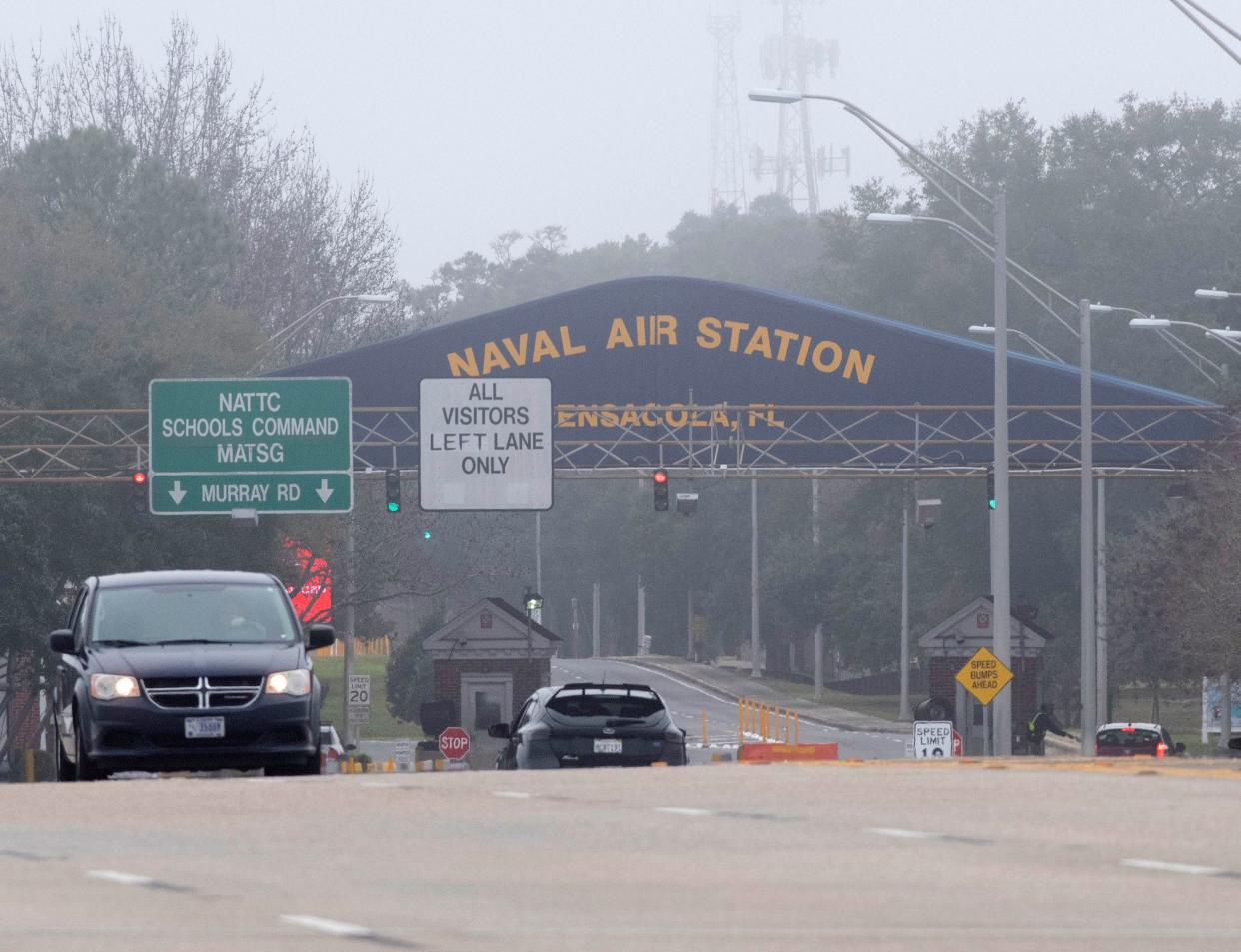Pentagon plans new security protocols in wake of Pensacola attack

PENSACOLA, Fla. – Following the deadly attack that was ruled an act of terrorism at Naval Air Station Pensacola, the Department of Defense says it will soon announce revamped protocols for security, physical security and vetting at U.S. military bases.
During a press conference Thursday in Washington, chief Pentagon spokesman Jonathan Rath Hoffman announced that Secretary of Defense Mark Esper will visit Pensacola next week to thank the personnel who responded to the mass shooting at NAS Pensacola Dec. 6.
"The secretary will also provide an update to air station leadership on the new vetting and security procedures he is mandating to make our bases more secure," Hoffman said. "We will announce these new measures shortly, which will include physical security procedures as well."
Hoffman declined to give specific information on what the new policies would entail, but he confirmed the changes would include more direct screening by the Department of Defense.
NAS Pensacola: Shooting at Navy base was 'act of terrorism,' attorney general says
"The tragedy in Pensacola has led us to address the vetting," Hoffman told reporters. "Previously vetting had been handled by the home country of the students as well as (the Department of Homeland Security) and the State Department, so we've taken an enhanced look at that – how we can use our resources and information we have to do an enhanced vetting."
A 21-year-old Saudi aviation trainee killed three service members and wounded eight other people during an armed rampage through an classroom building at NAS Pensacola. He was ultimately killed by responding law enforcement.
A investigation determined he had been motivated by jihadi ideology and anti-American sentiment, and the Department of Justice classified the attack as an act of terrorism.
The attack prompted Esper to review the government's vetting and base security protocols, as well as launch a new round of screening for the approximately 850 Saudi military personnel training in the U.S.

Earlier this week, U.S. Attorney General William Barr announced the review had found 21 Saudi military students had engaged in anti-American rhetoric or been in contact with child pornography. All 21 were unenrolled from the program and returned home to Saudi Arabia, Barr said.
Immediately after the shooting, the Navy issued a "safety stand-down" that grounded 140 Saudi military students training at NAS Pensacola and 35 training at Whiting Field. Hoffman said classroom training had continued for those students over intervening weeks.
Hoffman told reporters Thursday, in regards to the students' "operational" training, "we're looking forward to turning that back on in the coming days."
"We believe that the international military student training program is incredibly valuable," Hoffman said. "We've seen over a million students from more than 150 countries over the last 20 years go thorough this program."
This article originally appeared on Pensacola News Journal: Pentagon: Military base security changes coming after Pensacola attack

